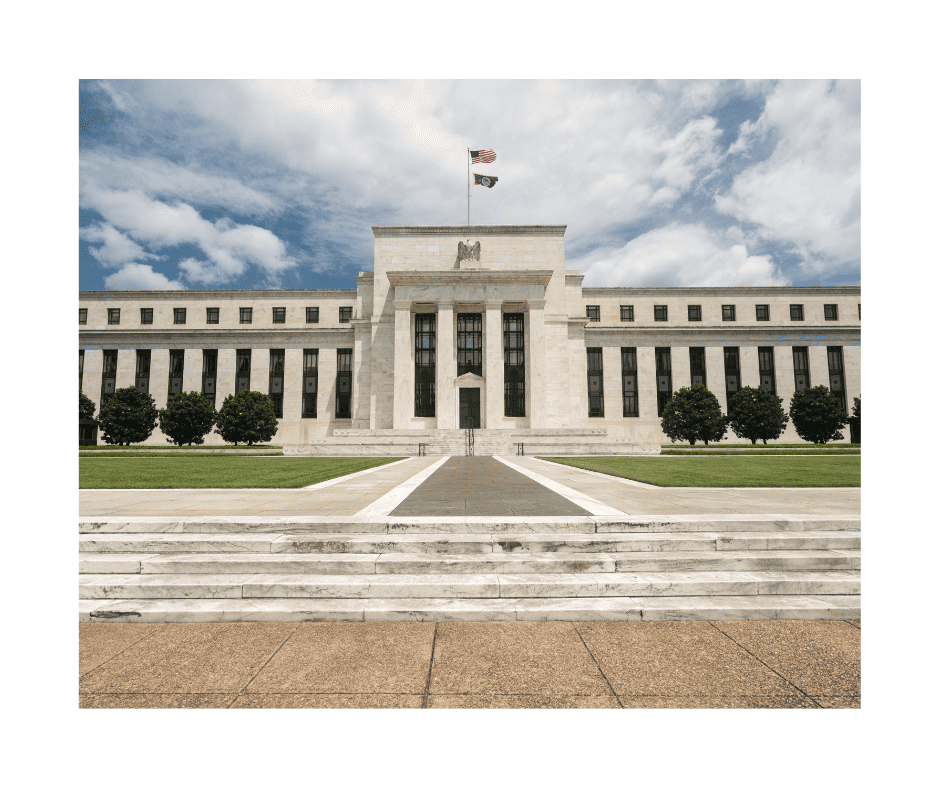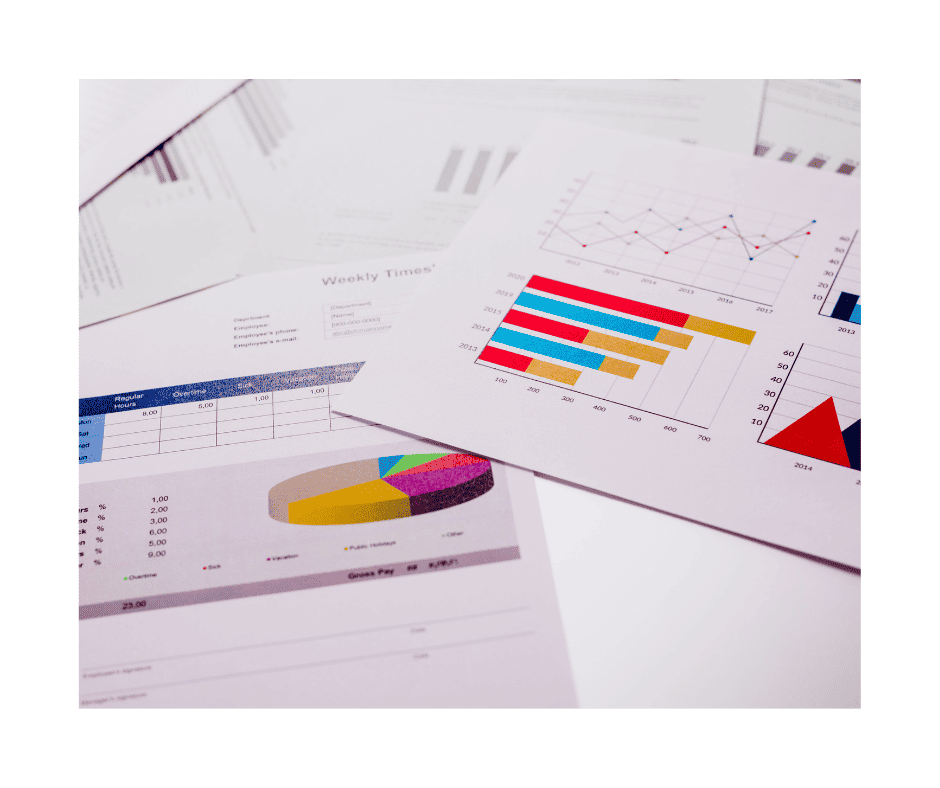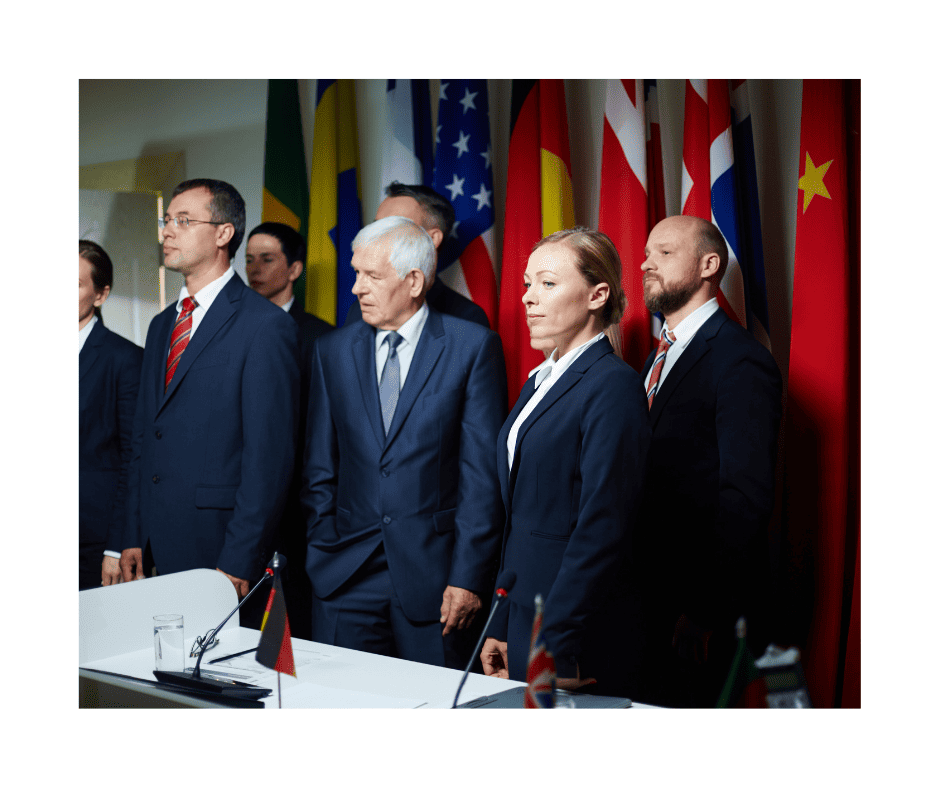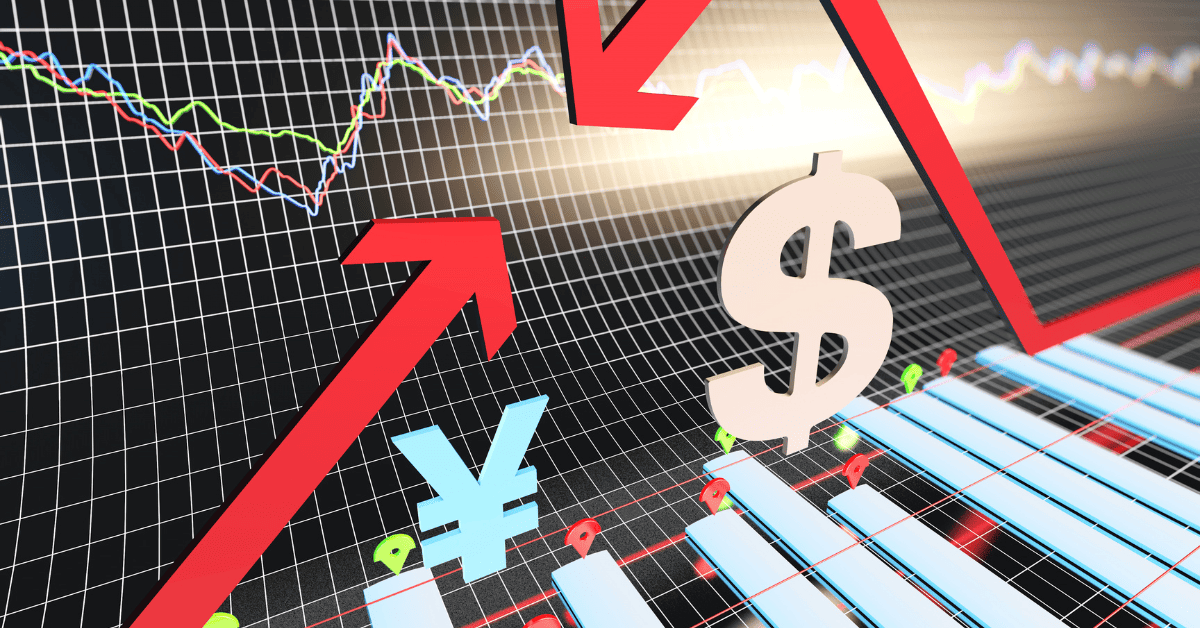Economics in Forex trading is the foundation of currency fluctuations.
This article delves into the intricate relationship between economics and Forex trading, highlighting how understanding this link can lead to more informed and potentially successful trading decisions.
What is the Role of Economics in Forex Trading Fundamentals?
Economic fundamentals are critical in determining the strength and stability of a nation’s economy and, consequently, the value of its currency in the Forex market.
These fundamentals include GDP, inflation, interest, and employment figures.
GDP and Forex Market
Gross Domestic Product (GDP) measures all goods and services produced in a country and is a primary indicator of economic health.
A rising GDP often leads to an appreciation of the country’s currency. For example, if the United States reports higher-than-expected GDP growth, it can lead to an increase in the value of the USD.
On the other hand, if a country like Japan experiences a decline in GDP, this could result in a devaluation of the JPY.

Inflation and Currency Value
Inflation measures the rate at which the general level of prices for goods and services is rising.
Moderate inflation typically indicates a growing economy, which can strengthen a currency. For instance, if the Eurozone has a healthy inflation rate, it might lead to an appreciation of the EUR.
Conversely, high inflation, as seen in countries like Venezuela, can rapidly decline currency value due to decreased purchasing power.
Interest Rates
Interest rates set by central banks are crucial in Forex trading. Higher interest rates offer better returns on investments in a country’s currency, attracting foreign capital and thus increasing the currency’s value.
For example, if the Bank of England raises interest rates, it could lead to an increase in the value of the GBP.
Conversely, when the Federal Reserve (Fed) cuts rates in the U.S., the USD might weaken against other currencies.
Employment Figures and Economic Stability
Employment levels are a significant indicator of a country’s economic health. High employment rates typically boost consumer spending and economic growth, strengthening the currency.
For instance, the CAD might strengthen if Canada reports higher employment rates.
On the other hand, rising unemployment rates, like those experienced during economic recessions, can weaken a currency, as seen in the case of the Greek financial crisis, which led to a weakening of the Euro.
Trade Balances and Currency Strength
The trade balance, which measures the difference between a country’s imports and exports, also influences currency value.
A country with a trade surplus (more exports than imports) generally sees its currency appreciate.
For example, China’s trade surplus has historically been a factor in the strength of the Yuan (CNY). Conversely, a trade deficit can lead to currency depreciation.

Political Stability and Economic Confidence
Political stability plays a crucial role in economic confidence. Stable governance often attracts foreign investment, strengthening the currency.
For example, countries with stable political environments, like Switzerland, often see a stronger CHF.
In contrast, political turmoil, as seen in countries experiencing coups or significant policy shifts, can lead to currency depreciation due to decreased investor confidence.
Central Bank Policies and Market Perception
The policies and communications of central banks significantly impact the perceptions of the market and the values of currencies.
It is essential to recognize the extent to which central banks can influence economic trends and adjust monetary policies accordingly.
For instance, if the European Central Bank signals a dovish stance (favoring lower interest rates), it might weaken the EUR against other currencies.
Understanding economics in Forex trading is the intricate relationship between a country’s economic fundamentals and currency value.
Traders who closely monitor these indicators and interpret their implications accurately are better positioned to make informed trading decisions.
Economics in Forex Trading: How does Reporting impact Currency Valuations?
Economic reports are essential for Forex traders to analyze market trends.
These reports, released periodically, cover various aspects of a country’s economy and offer traders valuable information for making informed decisions.
Economics Trading in Forex: What Reports Move Currencies?
Gross Domestic Product (GDP) Reports
GDP reports, which measure the total value of goods and services produced in a country, are among the most significant indicators of economic health.
They are released monthly and quarterly, giving an overview of economic growth and stability.
A higher-than-expected GDP report can boost a country’s currency, while a lower-than-expected report can lead to depreciation.
Inflation Data
Reports on inflation, such as the Consumer Price Index (CPI) and Producer Price Index (PPI), provide insights into the purchasing power of a currency.
Rising inflation might lead to higher interest rates, strengthening a currency. Conversely, lower inflation or deflation can weaken a currency.

Employment Data
Employment reports, including unemployment rates and non-farm payrolls in the United States, are closely watched by Forex traders.
High employment rates generally signal a strong economy, potentially leading to a stronger currency, while rising unemployment can indicate economic weakness.
Trade Balance Reports
These reports show the difference between a country’s imports and exports.
A trade surplus can cause currency appreciation, while a deficit can lead to depreciation.
Retail Sales
Retail sales data indicate consumer spending levels, a significant component of economic activity.
Solid retail sales can signal a healthy economy, boosting the currency, while weak sales can have the opposite effect.
Central Bank Minutes and Interest Rate Decisions
Central bank meetings and the minutes of these meetings are critical for Forex traders.
They provide insights into the central bank’s view of the economy and monetary policy decisions, particularly regarding interest rates.

Timing and Forex Market Reaction
The timing of these reports is crucial. Most economic calendars specify when key reports will be released, typically resulting in heightened volatility in the Forex market around these times.
Traders often anticipate these releases and may position themselves accordingly.
Interpretation and Strategy
Understanding and interpreting economic reports is a skill that Forex traders develop over time.
It involves reading the data and understanding market expectations and the likely reaction of different currency pairs.
For instance, if a report is better than expected, a currency might strengthen, and traders might look to buy that currency.
Long-Term vs. Short-Term Impact
Some economic reports immediately and sharply impact the Forex market, while others influence long-term trends.
For example, a surprising change in interest rates by a central bank can cause immediate and significant currency movement, whereas gradual changes in GDP may influence long-term trends.
Global Economic Reports
Reports from major economies like the United States, the Eurozone, and China can affect various currency pairs worldwide in our interconnected global economy.
Forex traders must be aware of global economic conditions and not just focus on single-country reports.
Successful traders track when these reports are due and develop the ability to interpret and react to the information they provide.
This understanding helps formulate strategies that capitalize on the volatility and trends these reports often create in the Forex market.

Political Events and Economics in Forex Trading – What Impact on Markets?
Political events significantly shape economic policies and currency values in the Forex market.
Understanding the relationship between political stability, policy decisions, and market sentiment is crucial for Forex traders.
Elections and Government Changes
Elections and changes in government can lead to significant fluctuations in a country’s currency.
Perceiving a newly elected government as fiscally responsible could cause an appreciation in the national currency.
If investors perceive the incoming government as unstable or anticipate that it will implement unfavorable economic policies, it may cause currency depreciation.
For instance, the UK’s Brexit vote led to considerable GBP volatility due to uncertainty about the country’s economic future.
Political Stability and Investor Confidence
Political stability is a crucial driver of investor confidence. Stable governments that uphold the rule of law and have transparent policies tend to attract foreign investment, strengthening the nation’s currency.
On the other hand, political turmoil, such as coups, civil unrest, or corruption scandals, can deter investment and lead to currency depreciation.
The political unrest in countries like Venezuela has historically hurt their currencies.

Policy Announcements and Currency Impact
Policy announcements, especially regarding fiscal and monetary policy, can immediately affect the Forex market.
For instance, announcements about tax reforms, government spending, or changes in interest rates can lead to significant currency movements.
The announcement of quantitative easing programs by central banks, as seen in the U.S. and the Eurozone in the past, can lead to changes in currency value.
Geopolitical Tensions and Safe-Haven Currencies
Geopolitical tensions, such as conflicts, wars, or trade disputes, can increase market volatility.
In such times, traders often move towards safe-haven currencies like the USD, CHF, and JPY. These currencies are considered more stable in times of global uncertainty.
For example, during heightened tension between the U.S. and North Korea, there was a noticeable shift in investment towards these safe-haven currencies.
International Relations and Trade Agreements
International relations and trade agreements can also influence currency values.
Positive developments in international trade, such as the signing of free trade agreements, can strengthen a country’s economic outlook and currency.
Conversely, trade wars and tariffs can lead to uncertainty and weaken the countries’ currencies.
The U.S.-China trade tensions in recent years serve as a prime example, affecting not just the USD and CNY but also other global currencies.

Economic Sanctions and Currency Value
Economic sanctions imposed by one country on another can directly impact the latter’s economy and currency.
For instance, sanctions can restrict a country’s ability to trade or access international financial markets, leading to currency devaluation.
The sanctions on Iran, for example, have significantly impacted its economy and currency value.
Navigating the Forex market requires staying informed about global political developments and understanding their potential impact on different economies and currency pairs.
This knowledge allows traders to make more strategic trading decisions in a market sensitive to political climates.
How Global Interactions Impact Economics in Forex Trading
In Forex trading, the concept of global economic interactions is paramount.
The interconnected nature of the world’s economies means that events in one region can have ripple effects across the globe, influencing currency values and Forex market dynamics.
The Impact of Major Economies
Major economies like the United States, China, the Eurozone, and Japan significantly influence global economic trends.
Policies or economic shifts in these regions can substantially impact the Forex market.
For example, a change in the U.S. Federal Reserve’s interest rate policy can affect the USD and trigger reactions in other currency markets due to the dollar’s global dominance.

For example, a country with a substantial trade surplus, like Germany, often sees its currency, the Euro, appreciate. Conversely, countries with large trade deficits may face currency depreciation.
Additionally, disruptions in global supply chains, as witnessed during events like the COVID-19 pandemic, can lead to significant fluctuations in Forex markets.
Cross-Border Investment Flows
The flow of capital across borders for investments in stocks, bonds, real estate, and other assets can influence currency values.
For example, if international investors favor U.S. assets, there may be an increased demand for USD, leading to its appreciation.
Similarly, if investors pull out from emerging markets, it can lead to a depreciation of the local currencies.

Global Economic Indicators
Global economic indicators, like the Global Manufacturing PMI (Purchasing Managers’ Index), give traders insights into the health of the world economy.
These indicators can affect market sentiment and influence Forex trading strategies.
Favorable global economic data can lead to risk-on behavior, where traders are more willing to invest in higher-yielding, riskier currencies.
In contrast, harmful data can lead to risk-off behavior, favoring safe-haven currencies.
International Financial Institutions and Policies
Decisions and policies from international financial institutions like the International Monetary Fund (IMF) or the World Bank can impact Forex markets.
Their economic outlooks, policy advice, and financial assistance programs can shape economic conditions in various countries, affecting their currencies.
The Role of Global Events
Events of global significance, such as environmental issues, pandemics, or international conflicts, can influence Forex markets.
These events can change global economic forecasts and risk assessments, leading to shifts in currency values.
The global response to climate change, for instance, has the potential to significantly alter economic policies and currency values in the long term.
The Forex market does not operate in isolation; economic activities, policies, and events worldwide profoundly influence it.
Understanding these interactions and their potential impacts on different economies and currency pairs is vital for developing effective trading strategies.

What is the Importance of Economics in Forex Trading?
Economic analysis is the cornerstone of making informed and strategic decisions in Forex trading.
It involves scrutinizing various economic indicators and understanding their implications on currency values and market trends.
Understanding Fundamental Analysis
Fundamental analysis in Forex trading entails evaluating a country’s economic, social, and political conditions to assess the strength and stability of its currency.
Capturing this knowledge includes analyzing economic reports, policy decisions, political events, and societal changes.
Economic Indicators and Data
Economic indicators include GDP, inflation, unemployment, trade balances, and interest rates.
Traders analyze these data points to predict how they might influence currency values.
For example, a rise in a country’s inflation rate might lead to expectations of higher interest rates, which could strengthen the currency.
The Role of Government and Central Bank Policies
Government fiscal policies and central bank monetary policies are crucial in fundamental analysis.
Decisions about government spending, taxation, and central bank interest rate changes significantly impact a country’s economy and, consequently, its currency value.

Technical Analysis with Economic Analysis
There are two main approaches to predicting future currency movements: fundamental analysis and technical analysis.
While fundamental analysis focuses on economic and political factors, technical analysis involves studying past market data.
By examining this historical data, traders can make informed predictions about future currency movements.
It complements economic analysis by helping traders identify potential market entry and exit points.
Sentiment Analysis Reflects Market Psychology
Sentiment analysis involves assessing the mood or opinion of the market participants. It helps understand whether the market is bullish or bearish on a currency pair.
Economic reports, news, and global events can influence market sentiment, affecting currency values.
Integrating Analysis into Trading Strategies
Successful traders often integrate fundamental and technical analysis into their trading strategies.
They use fundamental analysis to understand the broader economic picture and technical analysis to time their trades effectively.
The Impact of Economic Forecasts and Projections
Economic forecasts and projections, provided by government agencies, financial institutions, and independent economic analysts, play a vital role in economic analysis.
These forecasts help you anticipate potential market movements and prepare your strategies accordingly.

Adapting to Economic News and Events
The Forex market can be sensitive to economic news and events.
You must stay informed and quickly adapt your strategies in response to new information, which can cause rapid and significant market movements.
Continuous Learning and Up-to-Date Knowledge
The economic landscape constantly evolves, making continuous learning and staying up-to-date with current events imperative for Forex traders.
A deep understanding of economic principles and current affairs provides a solid foundation for making informed trading decisions.
Conclusion
Economic analysis is a fundamental aspect of successful Forex trading. It involves a multifaceted approach that includes fundamental, technical, and sentiment analysis.
By understanding the potential impact of economic data and global events on currency values, traders can develop more robust and effective trading strategies.
This comprehensive approach to economic analysis is essential for navigating the complexities and opportunities of the Forex market.
What’s the Next Step?
Select a favorite chart and use what you learned in this article about trading using only technical indicators.
In addition, look for opportunities to incorporate multiple indicators in your analysis.
Once you’re ready to trade, choose a strategy and process you believe will work for you.
If you need help developing an analysis process, you can use our Six Basics of Chart Analysis. If you’re unfamiliar with the Six Basics, you can learn them here for free.
The “Six Basics” will give you a strong foundation in chart analysis, which you can incorporate with what you’ve learned about Forex trading.
In addition, when you get the “Six Basics,” you’ll also get Forex Forecast delivered to your inbox every Sunday.
Forex Forecast includes:
- Trade Ideas and Analysis
- I will show you the trade opportunities I’m watching using the Six Basics of Chart Analysis and Advanced Strategies.
- Case Studies from Around the Web
- Watch how applying the Six Basics worked on some of the best, most profitable trades.
- Trading Education Guides and Videos
- Want to learn most Six Basics techniques and advanced strategies?
- I produce Videos and Guides to help you learn and build a better trading practice.
- Links to New Articles
- I publish new articles on topics traders will want to know about every week, and you can find out when they post.
- Positionforex.com News
- Did something change at positionforex.com? Learn about it here first!
- Links to upcoming webinars
- Attend free webinars to improve your trading.
- And Much More
- Tools, Membership-only Videos, and more will be released in the Forex Forecast.
The best part – it’s completely free.

Frequently Asked Questions
What is the Significance of Economics in Forex Trading?
Economics is fundamental in forex trading as it directly influences currency values. Economic indicators like GDP, inflation rates, and interest rates provide insights into a country’s economic health, affecting the strength and stability of its currency in the global market.
How do Economic Reports affect Forex Trading?
Economic reports provide data on a nation’s economic performance, such as GDP growth, inflation rates, and employment figures. These reports guide traders in predicting future currency movements, informing their trading strategies.
Why are Interest Rates Important in Forex Trading?
Interest rates, set by central banks, are crucial because they influence investment flows. Higher interest rates typically attract foreign capital, leading to a stronger currency, while lower rates may result in a weaker currency.
Can Political Events Impact Forex Trading?
Political events like elections, policy changes, and geopolitical tensions can significantly impact forex trading. These events can alter investor confidence and economic stability, affecting currency values.
What is the Role of Risk Management in Forex Trading?
Risk management is essential in forex trading to mitigate potential losses. It involves strategies like setting stop-loss orders and diversifying portfolios to protect against market volatility and adverse movements.
Do Global Economic Interactions Influence Forex Trading?
Global economic interactions play a significant role in forex trading. Events in one part of the world can impact economies elsewhere, leading to fluctuations in currency values. Understanding these interactions helps traders in predicting market trends.
What is the Difference Between Fundamental and Technical Analysis in Forex?
Fundamental analysis involves studying economic indicators and political events to predict currency movements, while technical analysis focuses on historical market data like price and volume to identify trading opportunities.
What Impact Do Trade Balances Have on Currency Values?
Trade balances reflect the difference between a country’s imports and exports and can influence currency values. A trade surplus typically strengthens a currency, while a deficit can lead to depreciation.

